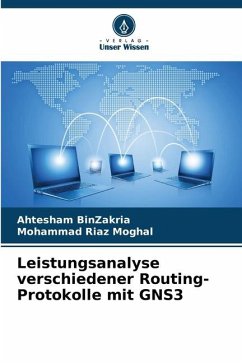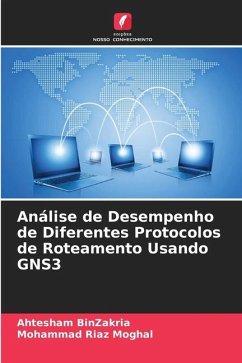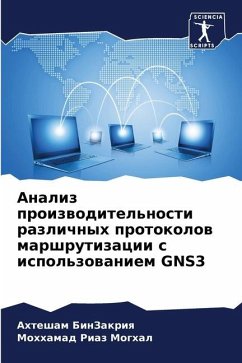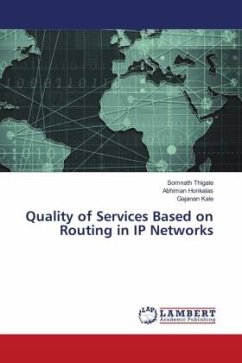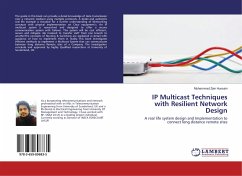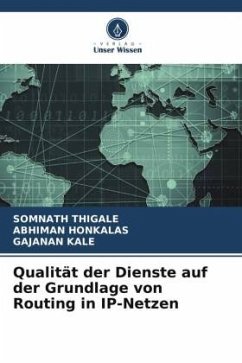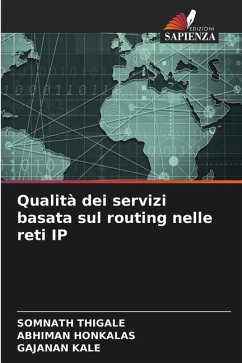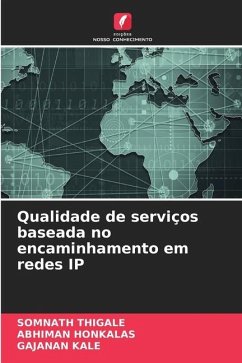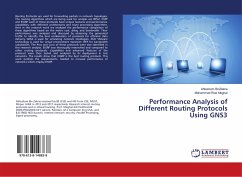
Performance Analysis of Different Routing Protocols Using GNS3
Versandkostenfrei!
Versandfertig in 6-10 Tagen
24,99 €
inkl. MwSt.

PAYBACK Punkte
12 °P sammeln!
Routing Protocols are used for forwarding packets in network topologies. The routing algorithms which are being used for analysis are RIPv2, OSPF and EIGRP, each of these protocols have unique features and performance capabilities, with different architectures and route processing algorithms. Here in this research work we analyzed the performance comparison of these algorithms based on the metric cost, delay, and bandwidth. Their performance was analyzed and discussed by observing the generated traffic to identify the best combination of protocols for efficient data delivery. GNS3 is used for ...
Routing Protocols are used for forwarding packets in network topologies. The routing algorithms which are being used for analysis are RIPv2, OSPF and EIGRP, each of these protocols have unique features and performance capabilities, with different architectures and route processing algorithms. Here in this research work we analyzed the performance comparison of these algorithms based on the metric cost, delay, and bandwidth. Their performance was analyzed and discussed by observing the generated traffic to identify the best combination of protocols for efficient data delivery. GNS3 is used for emulating network topologies, ESXI VMware technology is used for virtual environment moreover JPEF for bandwidth calculations. The Pros and Cons of these protocols were also identified in this research analysis. EIGRP was thoroughly researched and compared to other routing protocols. Capabilities and advanced features of the protocol were then tested and analyzed by its deployment in test networks. The results show that EIGRP is the best routing protocol. This work outlines the requirements, needed to increase performance of networks which employ EIGRP.



